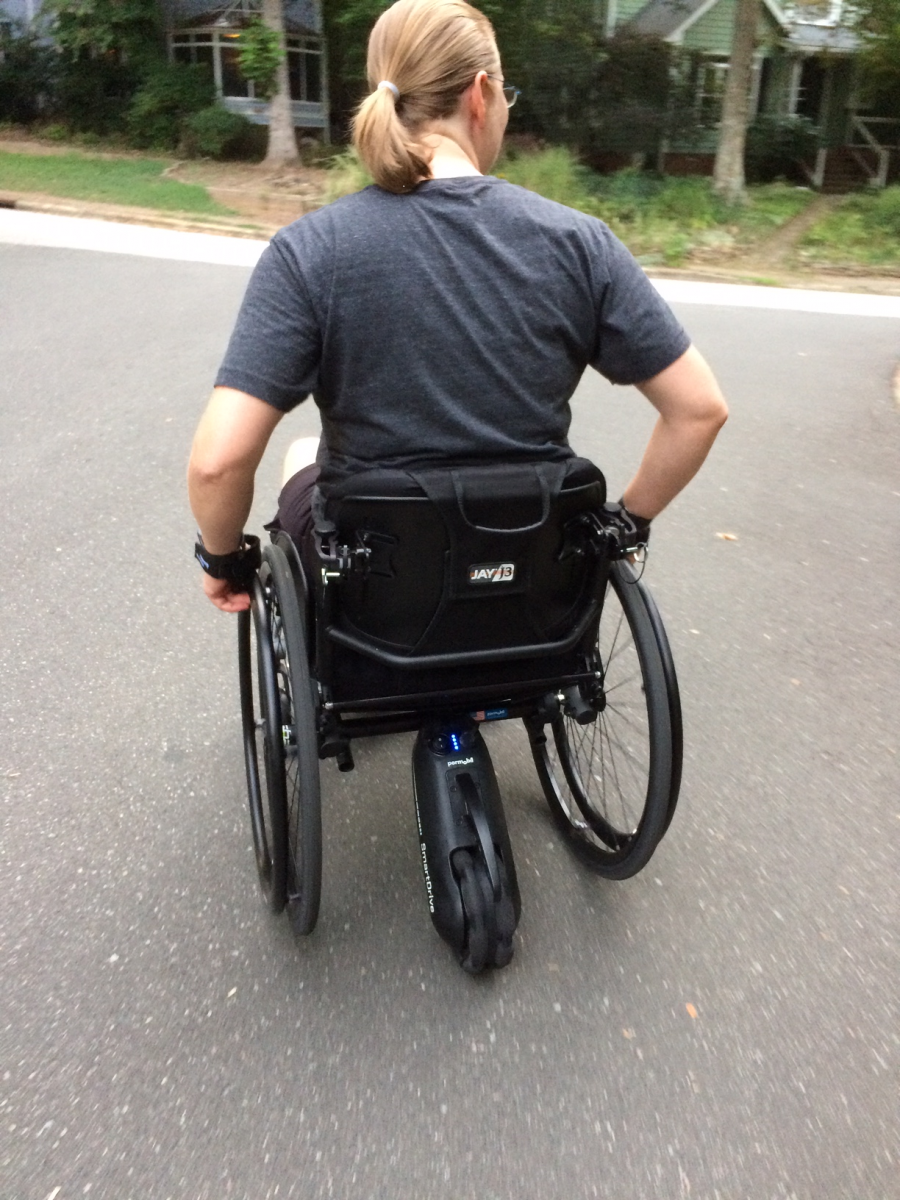I don’t share a lot about my disability, but I thought since I was recently hospitalized this might be a good time to talk about it a little bit more and share some of the things that have helped me adapt. I have Ehlers-Danlos Syndrome, which is an inherited connective tissue disorder. Several other family members from my dad’s side of the family also have it, but it’s fairly rare overall. I had symptoms of it from about age 12, but it wasn’t until I was almost 30 that I finally got a diagnosis that explained all of the bizarre problems I had been having all of these years. One of the main effects of the type of EDS that I have is hypermobile joints, caused by liga-ments that are too loose. As a child I could bend my knees backwards and do contortiony things with my elbows and shoulders. The downside of this was that I got hurt, a lot. I sprained my wrists, ankles, and knees on a fairly regular basis. I spent a lot of time in physical therapy and at the orthopedic clinic. When I got older, I started to have bouts of lightheadedness, headaches, and muscle weakness, which are neurological symptoms of EDS. One of the more scary compli-cations is nerve damage and the potential for spinal cord injury because my spine is also hy-permobile. If I twist too much for too long, I can damage the nerves that innervate my arms or legs, which is what happened a few weeks ago that led to my stint in the hospital. Right now I’m waiting for my nerves to heal so that I can move my legs more easily again. This isn’t the first time this has happened, but as I get older it takes longer for me to heal.
All of this sounds pretty depressing, and I do have my days of deep despair. Everyday tasks like getting into the shower, loading myself and my wheelchair in the car, cooking, are all more complicated for me than for other people. But despite this I have a life that is full of goodness and enjoyment. I am lucky to live in a country where accessibility is legislated and has become part of all of our everyday lives, including in education and employment, though the system is still less than perfect. I also have a loving family and good friends, who help me when I need it, and an accessible house to live in where I can go about all of the ordinary tasks of life without hindrance. And what’s more and even better, because I have faced so much adversity from a young age, my resilience muscles are incredibly strong. When life becomes more difficult, the only way forward is to adapt and keep going. I have adapted again and again, and it gets tiring sometimes, but it’s always worth it.


